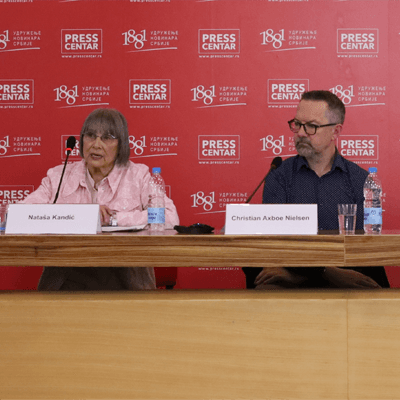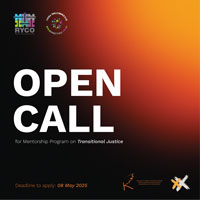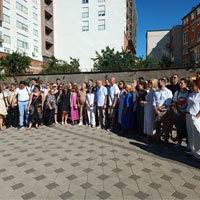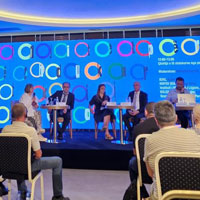S.N. perches on the edge of a sofa, her lips trembling as she recalls the events of April 21, 1999, when she was among some 300 women and children rounded up by Serb forces in a school in the Kosovo mountain village of Dragaqine/Dragacin. The words do not come easily.
The war in Kosovo was at its height, NATO planes one month into a bombing campaign that would last 11 weeks before Serb forces were driven from majority-Albanian Kosovo, then a southern province of Serbia.
Forced to flee their homes by shelling, S.N., her two young daughters, mother-in-law and sister-in-law had taken refuge in Dragaqine/Dragacin, south-central Suhreke/Suva Reka municipality. Two days later, Serb soldiers surrounded the village.
Now 52-years-old, S.N. has never before spoken of what followed, though rumours and reports surfaced within weeks.
“Every night Serbian soldiers dragged three to four women out of each house for an hour or two each,” The New York Times quoted witnesses as saying in a report from June 22, 1999, days after NATO forces had rolled into Kosovo, which became a ward of the United Nations for the next nine years. “The women were returned to the house sobbing and refused to tell the other women what had happened to them.”
The UN Commission on Human Rights also cited multiple reports of sexual slavery in Dragacine/Dragacin, but it was the Times report that laid bare the “horrific social stigma” that accompanies rape in Kosovo through the story of a husband who described kissing his wife – whom he believed had been raped – as “like kissing a dead body”. If she would admit it, he said, he would divorce her.
Today, in Dragaqine/Dragacin, there is a plaque affixed to the village well, down which 11 people were thrown by Serb forces and killed.
It was placed there by Rizah Trolli, 65, whose 83-year-old father was among those killed. Trolli also laid a cobblestone path to the site.
There is no plaque at the school where S.N. was held, however. There are no more children in Dragaqine/Dragacin, and the school has since been demolished.
Trolli said he “would not feel good” about a monument to the systematic rape of Kosovo Albanian women, even though his uncle’s late wife, Sherife, was one of the witnesses quoted in the 1999 Times story.
But in spite of the stigma, efforts to memorialise wartime rape in Kosovo continue, and took a significant step forward in late November with the opening of the Kosovo War Rape Survivors Museum in the capital, Pristina, by the Jahjaga Foundation of former Kosovo President Atifete Jahjaga.
“This museum is a call for reflection, a plea to break the stigma, raise awareness, and demand justice,” said museum coordinator Bleona Hajdari.
Culture of silence
Memorialisation ‘should be done carefully’
‘Power of remembrance’








